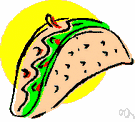pi·ta 1
(pē′tə)n.
A round flat bread of Middle Eastern origin that can be opened to form a pocket for filling. Also called pocket bread.
[Modern Greek pita, pie, cake, bread, from Medieval Greek, perhaps of Germanic origin; akin to Old High German bizzo, pizzo, bite, morsel; see bheid- in Indo-European roots.]
pi·ta 2
(pē′tə)n.
1. Any of several agaves that yield strong leaf fibers. Also called istle.
2. The fiber of any of these plants, used in making cordage and paper.
[Spanish, perhaps of Taíno origin; perhaps akin to Taíno pitahaya, pitahaya.]
American Heritage® Dictionary of the English Language, Fifth Edition. Copyright © 2016 by Houghton Mifflin Harcourt Publishing Company. Published by Houghton Mifflin Harcourt Publishing Company. All rights reserved.
pita
(ˈpiːtə)n
1. (Plants) any of several agave plants yielding a strong fibre. See also istle
2. (Plants) a species of pineapple, Ananas magdalenae, the leaves of which yield a white fibre
3. (Plants) Also called: pita fibre the fibre obtained from any of these plants, used in making cordage and paper
[C17: via Spanish from Quechua]
Collins English Dictionary – Complete and Unabridged, 12th Edition 2014 © HarperCollins Publishers 1991, 1994, 1998, 2000, 2003, 2006, 2007, 2009, 2011, 2014
pi•ta1
(ˈpi tə)n., pl. -tas.
1. a fiber obtained from plants of the genera Agave, Aechmea, etc., used for cordage, mats, etc.
2. any of these plants.
[1690–1700; < American Spanish < Quechua pita or Aymara p'ita]
pi•ta2
(ˈpi tɑ, -tə)n.
a round, flat Middle Eastern bread having a pocket that can be filled to make a sandwich. Also called pi′ta bread`.
[1950–55, Amer.; < Modern Greek pētta, pitta bread, cake, pie]
Random House Kernerman Webster's College Dictionary, © 2010 K Dictionaries Ltd. Copyright 2005, 1997, 1991 by Random House, Inc. All rights reserved.
ThesaurusAntonymsRelated WordsSynonymsLegend:
| Noun | 1. |  pita - usually small round bread that can open into a pocket for filling pita - usually small round bread that can open into a pocket for fillingflatbread - any of various breads made from usually unleavened dough gyro - a Greek sandwich: sliced roast lamb with onion and tomato stuffed into pita bread Middle East, Mideast, Near East - the area around the eastern Mediterranean; from Turkey to northern Africa and eastward to Iran; the site of such ancient civilizations as Phoenicia and Babylon and Egypt and the birthplace of Judaism and Christianity and Islam; had continuous economic and political turmoil in the 20th century; "the Middle East is the cradle of Western civilization" |
Based on WordNet 3.0, Farlex clipart collection. © 2003-2012 Princeton University, Farlex Inc.